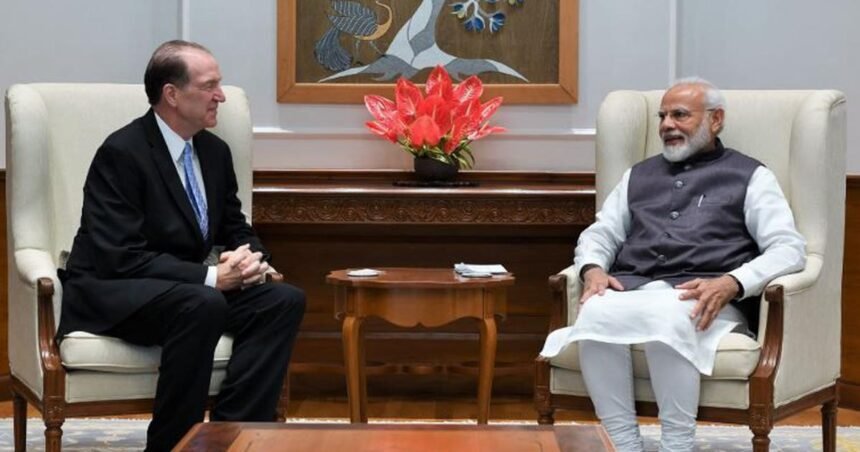World Bank President Ajay Banga praised India’s robust domestic consumption, highlighting its role as a natural safeguard for the country’s economy amidst a global slowdown. Emphasizing the significance of local demand, Banga expressed his optimism during a meeting with Union Finance Minister Nirmala Sitharaman. The discussions revolved around matters concerning the G20 summit and further collaboration between India and the World Bank.
In their meeting, Ajay Banga and Nirmala Sitharaman analyzed the recent G20 proceedings and explored possibilities for enhancing cooperation between India and the World Bank. Acknowledging India’s importance, Banga revealed that the nation currently represents the largest market for the World Bank in terms of their portfolio. He emphasized the considerable interest and investment potential India offers to the global financial institution.
With the global economy experiencing headwinds, India’s reliance on domestic consumption emerges as a critical factor in maintaining economic stability. The World Bank President commended India’s economy for its resilience, with a significant portion of the country’s Gross Domestic Product (GDP) derived from internal consumption. This reliance on domestic demand positions India favorably to weather external economic challenges, providing a cushion against the impact of global economic slowdowns.
Amidst uncertainties arising from international trade tensions and economic fluctuations, many countries experience vulnerabilities due to their heavy dependence on foreign markets. However, India’s unique strength lies in its large and diverse population, which drives significant local demand across various sectors. This homegrown demand helps insulate the Indian economy from external shocks and fluctuations, offering a degree of protection that many other nations lack.
As the meeting between the World Bank President and the Finance Minister delved deeper into areas of mutual interest, they explored potential avenues for further collaboration. India’s burgeoning economy, coupled with its vast market potential, presents numerous opportunities for the World Bank to engage in projects and initiatives that can foster economic growth, infrastructure development, and social welfare.
The G20 summit held particular importance during the discussions, given its relevance in addressing global economic challenges collectively. By participating in such international forums, India seeks to showcase its economic prowess while also contributing to cooperative efforts aimed at strengthening the global financial system.
The World Bank’s involvement in India’s development endeavors has been substantial, with numerous projects already underway. These initiatives cover a wide range of sectors, including infrastructure, education, healthcare, and rural development. As India continues to experience steady economic growth, the World Bank’s commitment to supporting and financing various projects within the country is likely to expand further.
The meeting between Ajay Banga and Nirmala Sitharaman emphasized the significance of cooperation and coordination among nations, particularly during challenging economic times. With India being a prominent player in the global economy, its domestic consumption-driven growth model serves as an inspiring example for other nations to diversify their economic strategies and strengthen their internal markets.
World Bank President Ajay Banga’s meeting with Union Finance Minister Nirmala Sitharaman underscored India’s reliance on domestic consumption as a natural cushion against the backdrop of a global economic slowdown. India’s thriving economy, fueled by substantial internal demand, provides a measure of insulation against external challenges, enabling the nation to maintain stability and continued growth. The collaborative efforts between India and the World Bank further demonstrate the potential for leveraging the country’s economic strength to foster development and prosperity on both national and global fronts.




